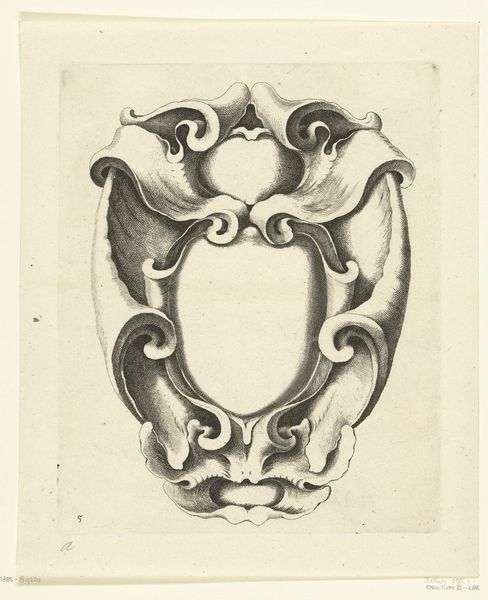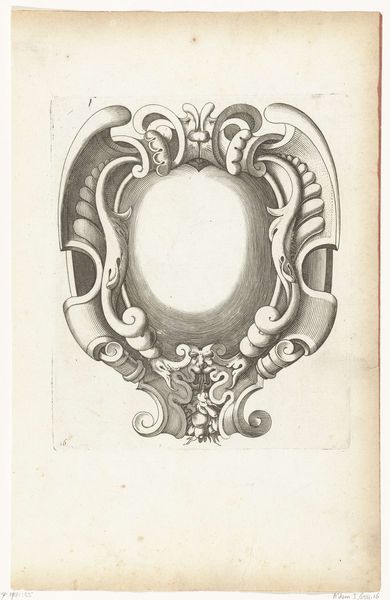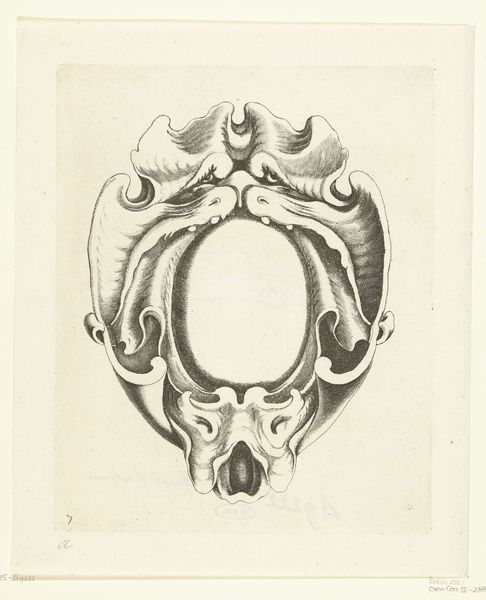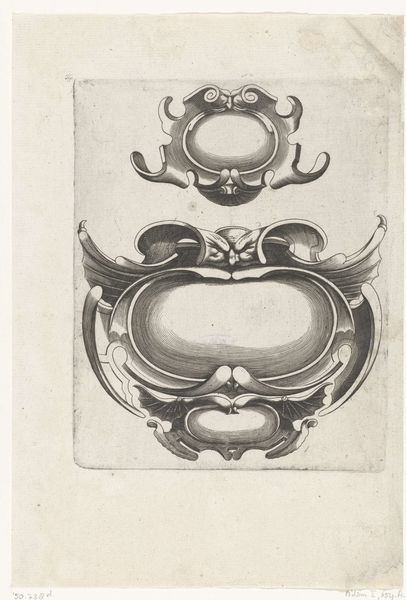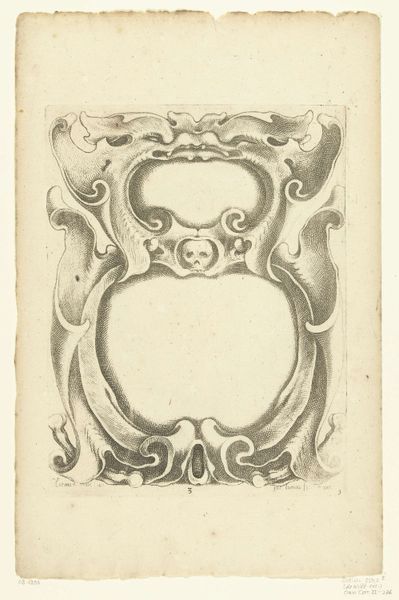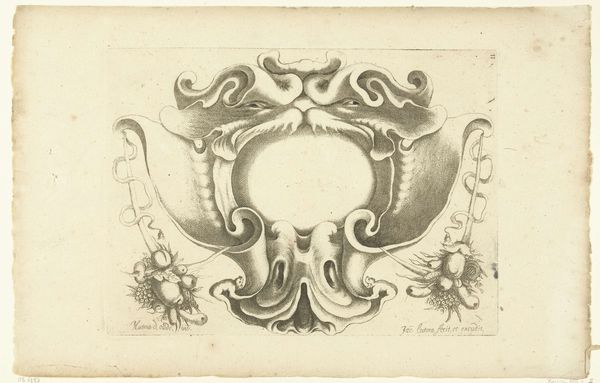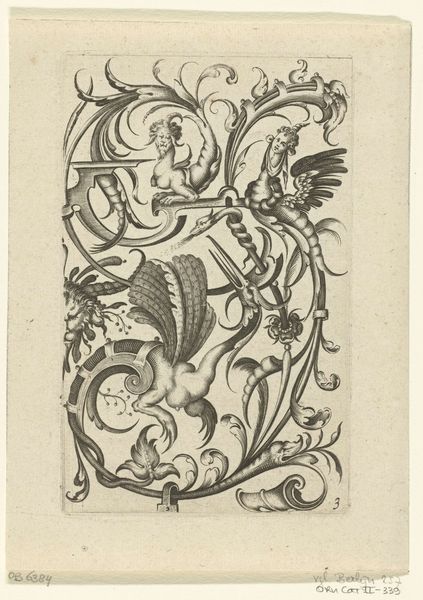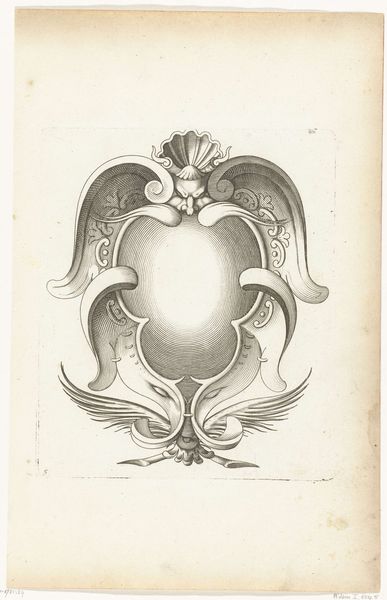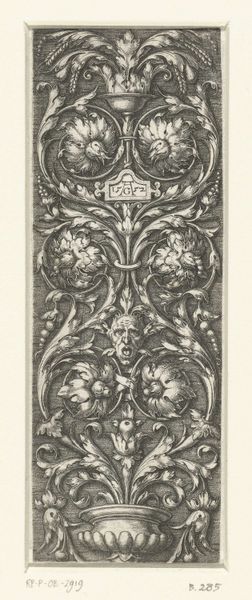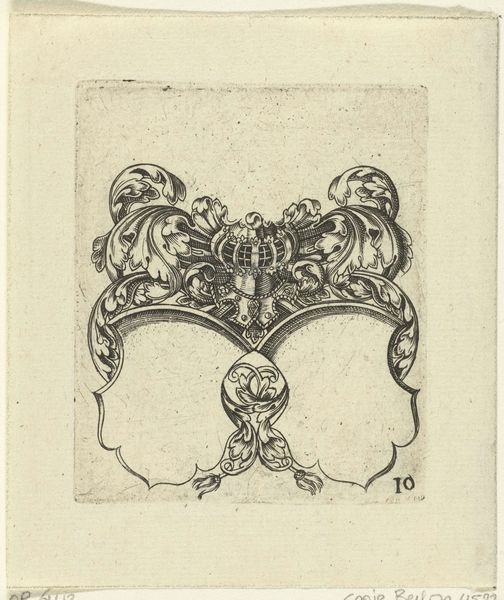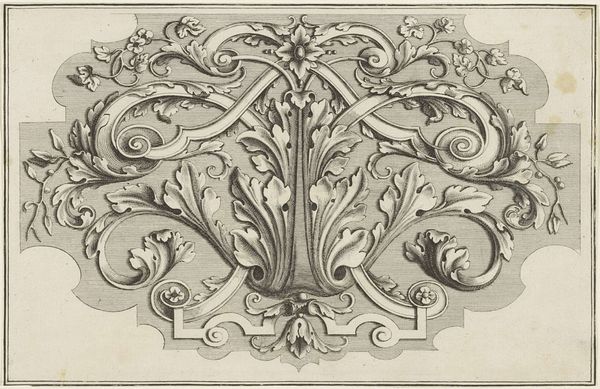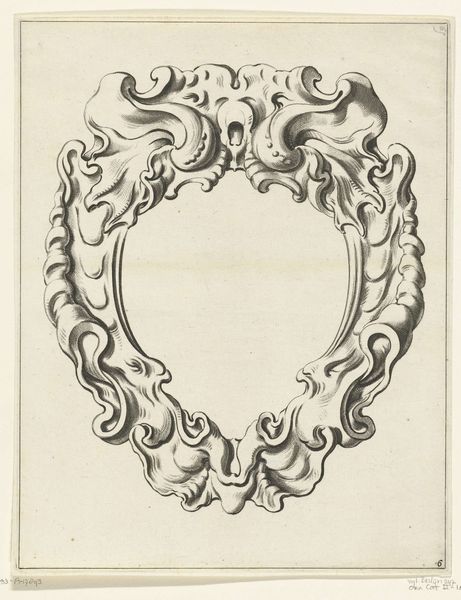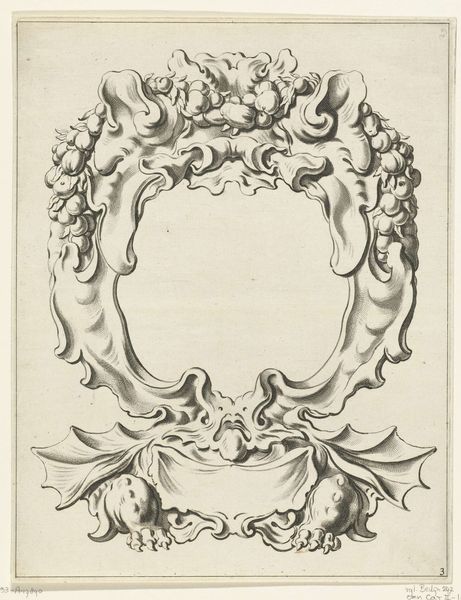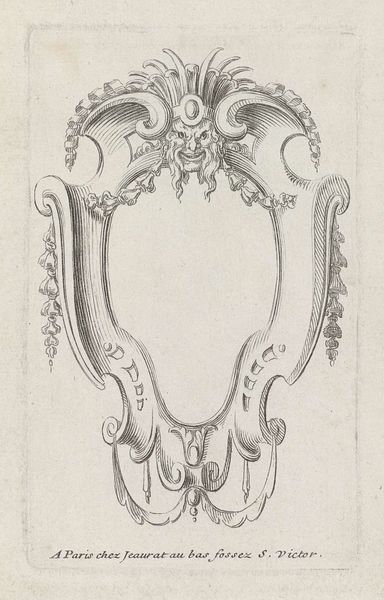
ornament, print, engraving
#
ornament
#
baroque
# print
#
vanitas
#
engraving
Dimensions: height 227 mm, width 184 mm
Copyright: Rijks Museum: Open Domain
Curator: Here at the Rijksmuseum, we have a rather fascinating print from around 1654-1678 by Jacob Lutma: “Cartouche met bovenaan een schedel.” An engraving, typical of the Baroque style. Editor: Okay, wow. Immediately, I'm getting a whimsical-yet-morbid vibe. It's ornamental but there’s also that little skull right at the top. Like a tiny reminder about... well, you know. Curator: Exactly. It falls into the “vanitas” tradition, which was popular then—reminders of mortality, the fleeting nature of earthly life and pleasures, through symbolic objects. Skulls, decaying fruit... joyful stuff! Editor: And the cartouche itself is so elaborate! Are those fantastical creatures flanking the central frame? They seem part fish, part dragon maybe? Curator: That’s part of what makes it Baroque—this delight in elaborate, often fantastical forms. Think about the cultural meaning of the skull, always whispering about our end, combined with the dynamic shape of a cartouche, it offers a space for personalized inscriptions, which creates such an interesting dynamic. Editor: The frame also feels... unfinished, somehow. It’s an outline waiting to be filled. It emphasizes the void; that you can write your own message in the empty shape it proposes, but ultimately your message doesn’t fill in mortality’s outline. It's profound, in its way, because of the Baroque flair for drama and symbolism. It does feel as if this work carries so many contradictions at the same time. Curator: It does encapsulate that tension, doesn't it? Perhaps, a quiet meditation on existence, elegantly framed. Editor: Yes. A flamboyant memento mori, in print form. Nice.
Comments
No comments
Be the first to comment and join the conversation on the ultimate creative platform.
